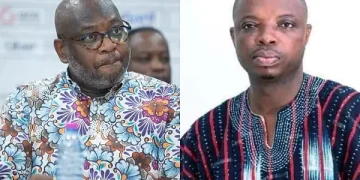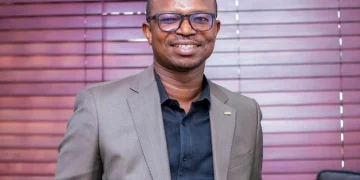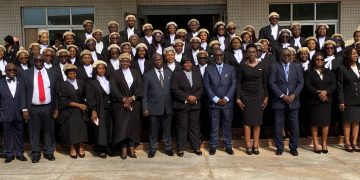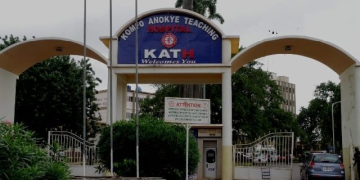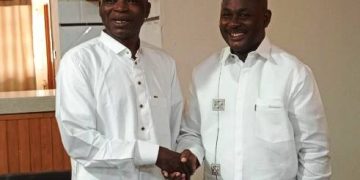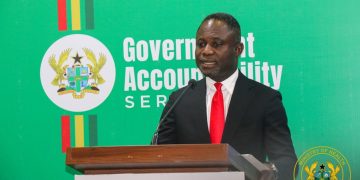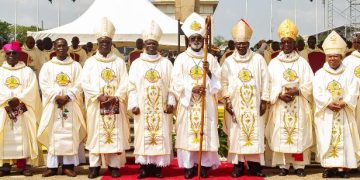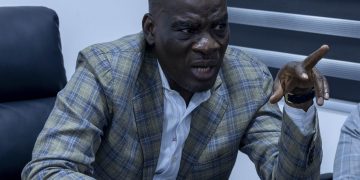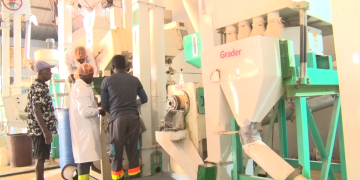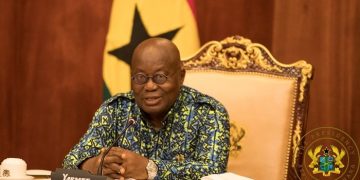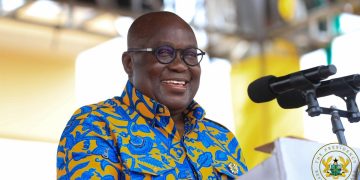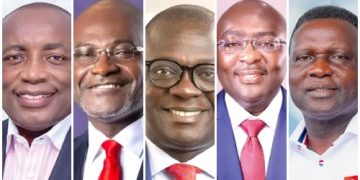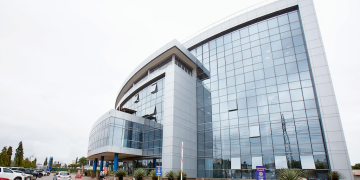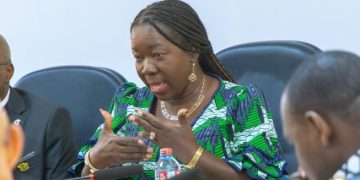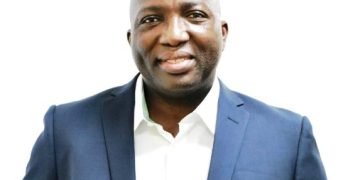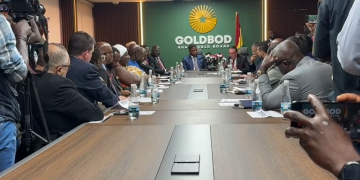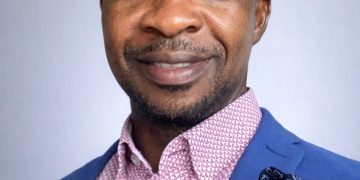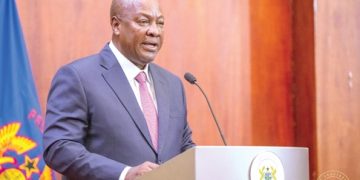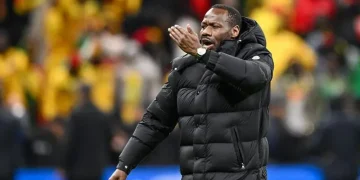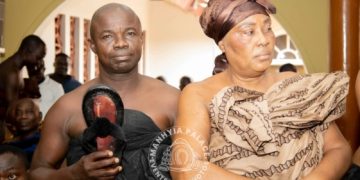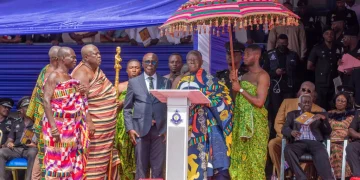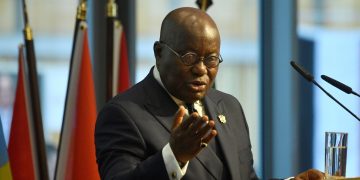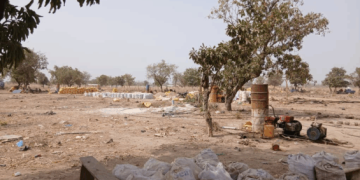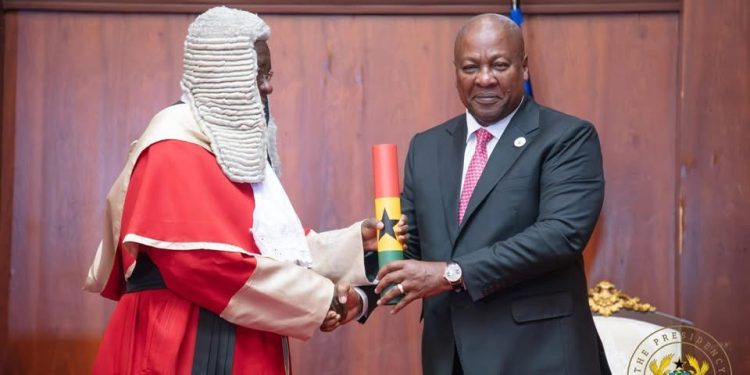President John Dramani Mahama has charged the newly sworn-in Chief Justice, Paul Baffoe-Bonnie, with prioritizing the strengthening of integrity within Ghana’s judiciary.
Speaking at the swearing-in ceremony at Jubilee House, the President said, “Our citizens must know and feel that justice in Ghana is not for sale, and that no one, regardless of their power or status, is too powerful or too humble to be held accountable under the law.”
Expressing his confidence in the new Chief Justice’s leadership, President Mahama stated, “And I’m confident that under your leadership, my Lord Chief Justice, the judiciary will continue to uphold its constitutional mandate without fear or favour, and as you said in your oath, without affection or ill will.”
He addressed the importance of public trust in institutions, saying, “In recent years, public institutions worldwide and in our own country have been questioned, scrutinised and sometimes criticised. Our people want institutions that work, but they also demand institutions that they can trust.”
The President warned of the damaging effects one act of corruption could have on the judiciary’s credibility.
“The judiciary, in particular, must be above reproach. One single act of corruption by a judicial officer can undermine years of hard work and erode public confidence in the entire system.”
Highlighting key reforms, he told the Chief Justice, “One of your most urgent tasks is to strengthen integrity within the judiciary. And this includes, firstly, firm but fair disciplinary standards for judges and staff. Secondly, transparent and predictable procedures for case assignments and management. Thirdly, strong internal mechanisms to address allegations of misconduct. And fourth, a culture where ethical conduct is rewarded and wrongdoing is swiftly sanctioned.”
On the issue of access to justice, President Mahama commented, “Justice must not only be fair, it must also be accessible, it must be timely, and it must be affordable. Too many of our fellow citizens still experience justice as something that is distant, that is slow, and financially burdensome.”
He pinpointed common challenges in the justice system, saying, “Court adjournments, delays in delivering judgments, and complex procedures can turn our courtrooms into places of frustration rather than places of hope.”
To tackle these, the President urged the Chief Justice to “prioritise the reduction of case backlogs through innovative case management systems,” and to pursue “the expansion and modernisation of court infrastructure, especially in underserved districts.”
He further encouraged embracing technology to improve judicial efficiency: “Also, the use of technology, e‑filing, virtual hearings where appropriate, and digital recordings to improve efficiency.”
Recognizing the government’s role, he assured, “As government, we recognise our responsibility to provide adequate resources to support these reforms. We’ll work with your office to ensure that the judiciary is adequately equipped to deliver justice in a modern and efficient manner.”
On protecting human rights, the President stressed, “The courts are the last refuge for the vulnerable, the poor, the marginalised, children, persons with disability, and all those who feel powerless in the face of authority or abuse. And so I trust that under your stewardship, the judiciary will deepen the protection of human rights and civil liberties.”
He added, “The judiciary will ensure that justice is not tilted in favour of the wealthy or powerful. And that it strengthens specialised courts and divisions where necessary to address issues such as family welfare, land disputes, commercial disputes, environmental protection, and corruption.”
Promoting alternative dispute resolution mechanisms, President Mahama said, “To promote alternative dispute resolution mechanisms to complement the formal courts, especially in community and family disputes.”
On continuous learning, the President remarked, “A modern judiciary demands continuous learning because the law is constantly evolving… I therefore encourage you to strengthen the Judicial Training Institute as a centre of excellence for continuing legal education.”
He called for “regular training in ethics, judgement, writing, court administration, and the use of technology for our judges and judicial officers,” and urged the development of “clear performance standards and evaluation mechanisms for judges and magistrates without compromising judicial independence.”
Recognizing collaboration as key to justice delivery, President Mahama urged, “So my Lord Chief Justice, I urge you to cultivate a strong constructive relationship with the bar and other professional bodies and stakeholders.”
He noted, “A robust debate between the bench and the bar is healthy. But it must be grounded in mutual respect and a shared commitment to the rule of law.”
Again, the President spoke about public understanding of the justice system, “I also encourage greater outreach and public education on our justice system. When citizens understand how the courts work, they are more likely to respect court decisions and to use lawful means to resolve their disputes.”
Source: www.Kumasimail.com


